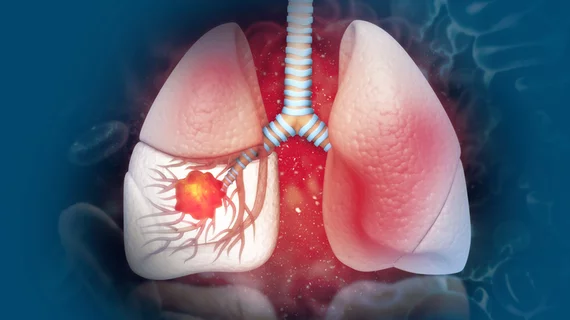ACR seeking changes to CMS proposal that would expand eligibility for CT lung cancer screening
The American College of Radiology is seeking changes to a recent federal proposal that would expand Medicare eligibility criteria for CT-based lung cancer screenings.
On Nov. 17, the Centers for Medicare & Medicaid Services said it found evidence to cover low-dose CT exams for Medicare beneficiaries between the ages of 50 to 77 instead of a starting age of 55. CMS also indicated it intends to expand its high-risk population from those with a 30 pack-year smoking history down to 20. The decision mirrors recently updated recommendations from the U.S. Preventative Services Task Force.
While the ACR and other groups have praised these updates, many of its recommendations have not been incorporated into CMS’ national coverage determination proposal, the college noted.
For example, the ACR recommends CMS “reconsider” its decision to remove the radiology imaging facility criteria and instead modify the language. The college specifically pointed to independent testing facilities.
“We affirm that LDCT lung cancer screening is a covered benefit in all facilities, including independent diagnostic testing facilities where the LDCT CT exam is performed and interpreted,” the college said Dec. 2. “However, the ACR believes CMS’ proposed coverage updates could lead to unintended consequences and poor quality as this benefit is expanded.”
CMS revealed its decision to explore expanded reimbursement for LDCT lung cancer screening back in May. A study published in September predicted that the new recommendations may lead to a 54% jump in eligible patients.
The ACR said it's working to ensure quality is central to any new lung cancer screening updates and is currently preparing comments for CMS that it will submit by the Dec. 17 deadline. CMS is expected to finalize its coverage decision by Feb. 15, according to the college.

